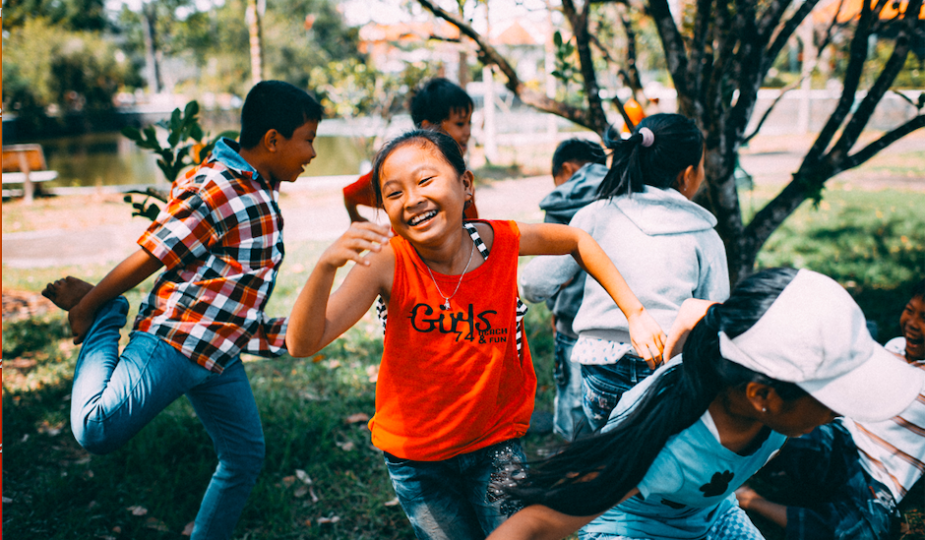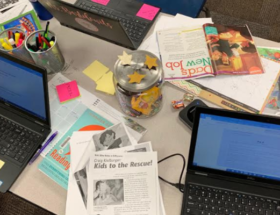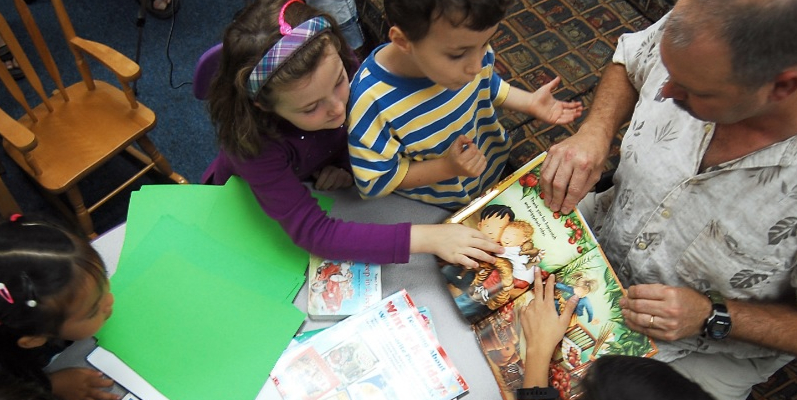Three families have contacted me in the last few weeks asking me to meet with their children over the summer months to read, write, and talk about texts. Today was the first meet-up with two of the families which included five students total, ages 5-14.
There will be–
no worksheets
no pre-packaged summer packets
no leveled books with prepared lessons
You may be wondering if the above are missing, then what will we do when we meet for summer reading support.
We’ll be engaging in inquiry.
Inquiry that starts squarely on students’ interest, choice, and strengths they already possess. Our first meeting starting a little differently than subsequent meetings. When I return week after week, the students will be choosing the focus of their inquiry based on great literature they’re reading (their choice), articles they’ve read, social media or discussions that sparked curiosity.
I won’t be providing much other than support for their inquiry. Most importantly I want to ask questions to find out where they’ll go next in their strengths-based research. “What else do you want to know? What was missing from what you’ve learned already? Are their other people you need to hear from about this? Who? Now that you’ve learned all this, what do you want to do with your new-found information? What action are you going to take?”
Both families have kids at varying ages/stages of reading development. Today we started with an article I’d found at Newsela
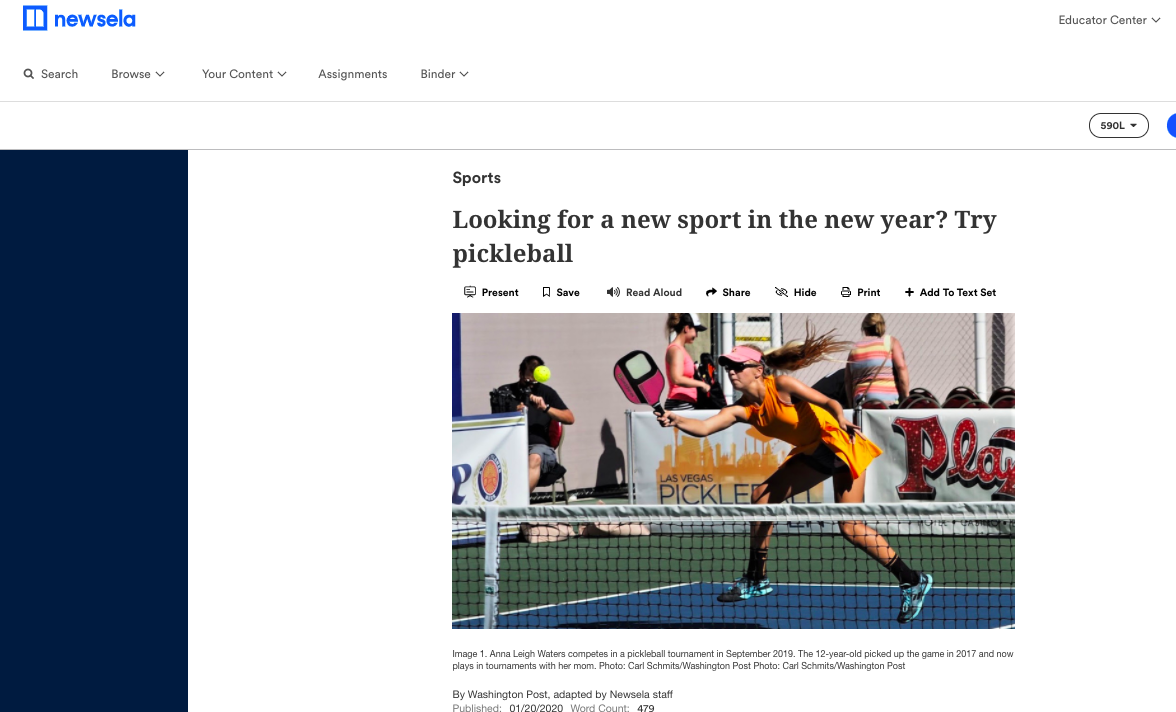
I love the drop down menu option on Newsela that lets the reader choose an appropriate reading level for the article. The first students I met with today needed to access the article at the 2nd and 4th grade levels.
They each read the article and then we worked together to note specific details. We spent a few minutes talking about things not included in the article that would lead us to further inquiry. The assignment for the two kids in this family was to take a few minutes to find out more about pickleball and spend time with their parents making a short presentation on what they’d learned from the original article and subsequent research they did; the ultimate goal was to inform and to persuade their parents to try out a quick game locally in the next two weeks.
The second family I met with today has kids going into third, seventh and ninth grade next year. We started with the same article. “What were you able to find out about pickleball? What else would you like to know?”
We created a Google document with links to a few other resources to answer some of their original questions. The assignment for these three siblings: create a presentation with information for your parents of this new popular sport with the final goal of convincing your parents to play a game locally.
The seventh and ninth grade students found links on the Google doc to lead them to another article in D Magazine about the growing popularity locally of pickleball as well as a video of some highlights from a recent championship.
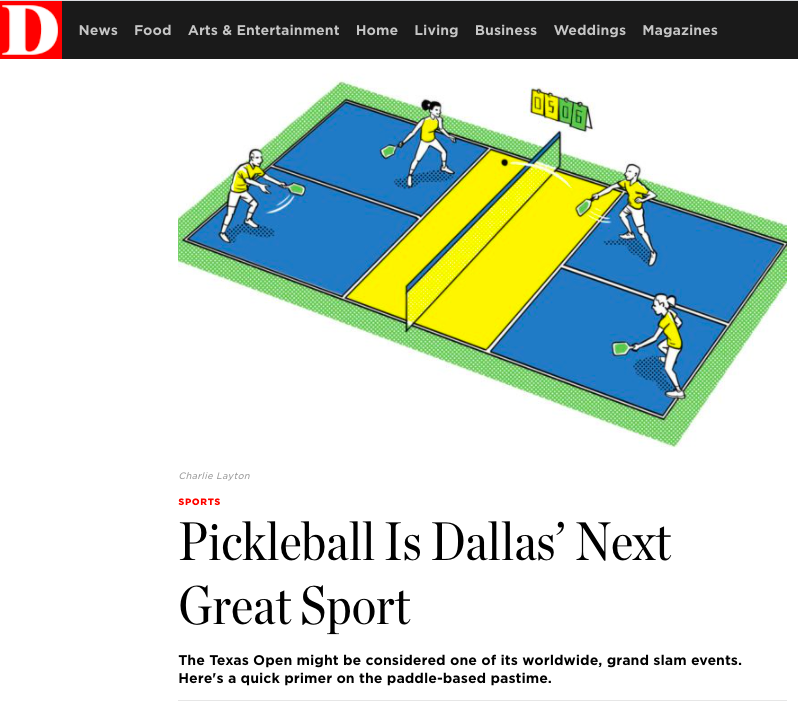
The students will be emailing me in the next few days giving details of the time and date for the presentations to their respective parents. Part of the assignment is that each family of kids will present me with a short video recording of at least a portion of their presentation.
It’s up to them what the presentation will entail. One student talked about using Google Slides, while another was interested in sketching details of the game of pickleball so his parents are clear on the court, rules, and equipment.
We worked together for a few minutes so that I felt confident they understood about the opportunity for inquiry. They voiced questions aloud about additional things they wanted to know that were not included in articles or videos we read/viewed to build curiosity.
“Are there any courts near us where people can play pickleball? Where could we get the paddles and balls? Is it expensive to play? Wonder why the popularity has only grown the last four years when the game was created in 1960? What does the game term staying out of the kitchen mean? Why are so many images we see on the internet of old people playing?”
Such great questions to get these kids started on their inquiry!
A lot of the intervention instruction I used this past year looked similar to this summer reading support launched today. More and more, I believe thatc. And, if we start with a focus on students strengths and not their deficits, the idea of acceleration seems to be the sweet spot for reading support.

